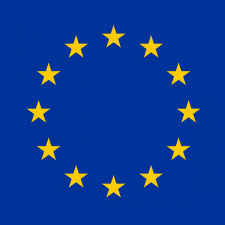The games industry moves quickly, and we don't always get a chance to put our thoughts across about every story that breaks.
As such we've created a weekly digest where members of the PocketGamer.biz team can share their thoughts on some of the more interesting things that have happened in mobile gaming over the past week.

Back in 2007 I was much, much younger. It was my first year working at GAME, which for a college dropout with purely creative ambitions and a lifelong interest in games, was a pretty tidy arrangement. Nobody really expected it to be such a massive year for games, but it shifted the entire console landscape; Call of Duty beat out Medal of Honor (remember Medal of Honor?) while Bioshock and Assassin’s Creed debuted. So too did The Witcher, Uncharted, Mass Effect and Crysis series.
Fifteen years in games is like a lifetime in most other industries though. Bioshock’s developers scattered to the wind, Mass Effect’s developer; Bioware was rolled into EA; Call of Duty’s Activision has twisted and turned from Vivendi control (who also had a good run at Ubisoft) through rebranding to include Blizzard to now being prime pickings for Microsoft. THQ, at the time a powerhouse for third-party IPs and licenses, is now so dead and gone that the name was revived by - what was in 2007 - a small retailer who would hit big two years later with We Sing and then go on to become looming industry giant Embracer Group.
Those fifteen years in games have completely changed the companies at the top of the console game, and while the platform holders, Microsoft, Sony and Nintendo are all still intact, the publishers that defined that generation have been ripped to shreds. With the bigger names that remain, Take-Two, Activision Blizzard, EA the majority of their wealth comes from mobile (Activision and Take-Two both reported 52% revenue from mobile in Q3). Mobile might not be a new frontier, 2007 was, after all only a year before Apple’s AppStore launched, but it’s definitely the major battleground for all of those who are still fighting to keep a foothold in the mobile space.
2023 will likely see Activision Blizzard, and with them, King, rolled into Microsoft, and also see Sony start to realise the mobile ambitions that they’ve recently kickstarted with a new mobile division and the Savage Games acquisition. Even Capcom are now starting to work closer with mobile, with a recent deal struck with Tencent’s TiMi Studios for Monster Hunter. It’s clear that the age of console dominance is over.

Unity’s latest financial report reveals $322.9 million in Q3 2022 revenue and predict Q4 earnings
In these days of permacrisis and uncertainty – where the gaming industry simultaneously enjoyed huge highs in player engagement but had to endure an ongoing inability to get the latest hardware into their hands – it's nice to see one predictable happy ending.
The fact that Unity weathered all storms and made impressive bank isn’t particularly any kind of surprise, but the numbers involved in their recently announced Q3 earnings are just the kind of good news that the big picture of ‘games’ is looking for right now after big name console titles slipped into 2023 and it’s looking like little Jonnie STILL might not get his PS5…
Mercifully on mobile, there’s far less chip vagaries to worry about and it’s only the games industry’s inability to get together, collude, collaborate and create that could have potentially slipped slush into our eggnog. And that’s where the likes of dev platforms such as Unity come in – bringing development under one shared solution, allowing the sharing and free communication of assets and generally helping the smart folks to get the mobile dev job done while the rest of the world fell to pieces around them.
Here’s hoping that as well as the Unity backroom boys making a few bucks, the genius minds at the frontline who make the mobile magic happen, get to have an almighty festive season too.

EU Parliament votes to adopt resolution recognising importance of video game ecosystem
The fact that a resolution is being adopted by some of the highest legislature in the European Union to recognise video games for their contribution to the economy, and calling for more support, should be bigger news in my opinion. It’s baffling to think that with the broader game industry being one of the biggest forms of mass media currently, if not of all time, that some still seem to consider it secondary to more ‘traditional’ forms.
Specifically, for mobile, I think this is an event that can be considered a real ‘moment of change’ where they have the opportunity to step forward and say, “Hey, this is about us too! We’re a major part of this!” For people who want to get into the game industry, the new push for education courses shouldn’t just be ‘This is how you design for console and PC’ but also ‘This is how you design for mobile.’
Mobile is one of the most accessible platforms, and being able to reach an audience that, frankly might as well be all of the world which is connected to the internet, should be something that warrants a section all of its own in the report. However, even if mobile doesn’t receive a specific mention, there’s no denying that the industry is going to garner greater attention now that they’re part of a broader economic consideration.
Companies like Supercell are as big as any software company if not bigger, and with more EU investment, ideally, this sort of cash will go to smaller studios that are likely to start with something on a widespread platform that can be monetized to give them creator cashflow. In this case, mobile is the perfect platform for that. However, it’s a question of if legislators will recognise that. Even now, the people coming into politics who are invested in video games are talking about companies like CD Projekt, Ubisoft and Paradox, an incredibly narrow view that misses the much wider and more diverse studios out there which don’t develop for the ‘big two’ platforms.

Pokemon Go generates revenue for local economies
The COVID-19 pandemic was an unprecedented public health crisis, and caused massive damage to the global economy. Gaming is arguably the industry that dealt with the economic downturn best, as new users sought out new forms and entertainment and established gamers spent more money on gaming.
What makes this story interesting to me is that it shows how gaming can have a positive effect on unrelated businesses, and perhaps the greatest argument so far for the company’s business model, and the possible effects AR gaming can have on local economies, as players travelled to the host cities and explored, pumping much-needed revenue into local businesses.
Although mobile gaming is often seen as a niche hobby, events such as this should prove definitively the massive potential of gaming on a mobile device, allowing players to take part in events such as this and contribute to the local economies in an immediately noticeable way. Going forward, I expect to see more and more events such as Pokémon Fest Live worldwide, encouraging mobile players to explore the host cities and discover more than they may have thought possible, all the while helping those cities financially.
Only 1.87% of venture capital is allocated to minority owned start-ups

This is a pretty startling statistic by any standards - although in some ways not at all surprising. Rich white straight men still rule the roost across virtually all sectors, and change (though happening) is slow to take hold.
Some argue that the solution is not to positively discriminate to improve these figures, and I'm not necessarily advocating for that, however there is surely an argument to be had for more examination as to why this is the case, before we can really find the solution to the problem.
In terms of STEM subjects generally, there has been a push by educational establishments and governments alike to encourage females into areas which they haven't 'traditionally' been attracted, but perhaps the solution is more top-down than bottom-up. Representation is key, and until minority groups (we aren't just talking women here) need to have access to examples of what is possible - it would be intersting to get some more insight on this subject, and it's certainly something I personally will be keeping an eye on in future.





















